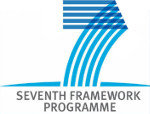Associations Between Psychosocial Well-Being, Stressful Life Events and Emotion-Driven Impulsiveness in European Adolescents
Do, S. ; Coumans, J.M.J. ; Börnhorst, C. ; Pohlabeln, H. ; Reisch, L.A. ; Danner, U.N. ; Russo, P. ; Veidebaum, T. ; Tornaritis, M. ; Molnár, D. ; Hunsberger, M. ; De Henauw, S. ; Moreno, L.A. (Universidad de Zaragoza) ; Ahrens, W. ; Hebestreit, A.
Resumen: Knowing the extent to which mental well-being and stressful life events during adolescence contribute to personality characteristics related to risk-taking behaviors, such as emotion-driven impulsiveness, is highly relevant for the development of health promotion measures. This study examined whether psychosocial well-being and different stressful life events are associated with emotion-driven impulsiveness. In total, 3, 031 adolescents (52% girls; Mage = 13.6 years) were included from the I. Family Study, a cross-sectional examination on lifestyle-related behaviors conducted across eight European countries in 2013/14. Linear mixed-effects regression models showed that higher psychosocial well-being was associated with lower emotion-driven impulsiveness independent of socio-demographic, health-related, and parental variables. A higher number of stressful life events was associated with higher emotion-driven impulsiveness. Psychosocial well-being and stressful life events need to be further considered in the development and tailoring of health promotion strategies that aim to reduce emotion-driven impulsiveness. © 2021, The Author(s).
Idioma: Inglés
DOI: 10.1007/s10964-021-01533-w
Año: 2022
Publicado en: JOURNAL OF YOUTH AND ADOLESCENCE 51, 6 (2022), 1106-1117
ISSN: 0047-2891
Factor impacto JCR: 4.9 (2022)
Categ. JCR: PSYCHOLOGY, DEVELOPMENTAL rank: 9 / 77 = 0.117 (2022) - Q1 - T1
Factor impacto CITESCORE: 7.6 - Psychology (Q1) - Social Sciences (Q1)
Factor impacto SCIMAGO: 2.03 - Developmental and Educational Psychology (Q1) - Social Sciences (miscellaneous) (Q1) - Social Psychology (Q1) - Education (Q1)
Financiación: info:eu-repo/grantAgreement/EC/FP7/266044/EU/Determinants of eating behaviour in European children, adolescents and their parents/I.FAMILY
Tipo y forma: Article (Published version)
Área (Departamento): Área Enfermería (Dpto. Fisiatría y Enfermería)
 You must give appropriate credit, provide a link to the license, and indicate if changes were made. You may do so in any reasonable manner, but not in any way that suggests the licensor endorses you or your use.
You must give appropriate credit, provide a link to the license, and indicate if changes were made. You may do so in any reasonable manner, but not in any way that suggests the licensor endorses you or your use.
Exportado de SIDERAL (2024-03-18-13:12:16)
Visitas y descargas
Idioma: Inglés
DOI: 10.1007/s10964-021-01533-w
Año: 2022
Publicado en: JOURNAL OF YOUTH AND ADOLESCENCE 51, 6 (2022), 1106-1117
ISSN: 0047-2891
Factor impacto JCR: 4.9 (2022)
Categ. JCR: PSYCHOLOGY, DEVELOPMENTAL rank: 9 / 77 = 0.117 (2022) - Q1 - T1
Factor impacto CITESCORE: 7.6 - Psychology (Q1) - Social Sciences (Q1)
Factor impacto SCIMAGO: 2.03 - Developmental and Educational Psychology (Q1) - Social Sciences (miscellaneous) (Q1) - Social Psychology (Q1) - Education (Q1)
Financiación: info:eu-repo/grantAgreement/EC/FP7/266044/EU/Determinants of eating behaviour in European children, adolescents and their parents/I.FAMILY
Tipo y forma: Article (Published version)
Área (Departamento): Área Enfermería (Dpto. Fisiatría y Enfermería)
Exportado de SIDERAL (2024-03-18-13:12:16)
Permalink:
Visitas y descargas
Este artículo se encuentra en las siguientes colecciones:
Articles > Artículos por área > Enfermería
Record created 2022-05-27, last modified 2024-03-19
